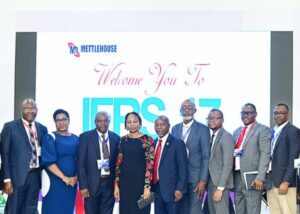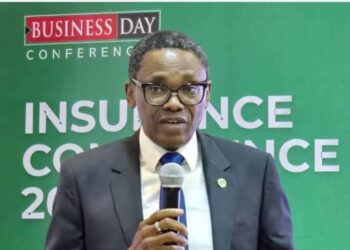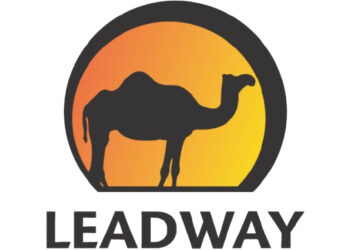IFRS 17 has been welcomed worldwide as the pathfinder for modern disclosures, transparency that is compatible and consistent in financial reporting at a world stage that has not up and until now applied without let up. In Biblical terms IFRS has not come to clampdown but to create a platform where what had not come to the knowledge of financial reporting or simply jettisoned or omitted is now the global standard, setting a no place to hide accounting standard.
Berthing this required constant discourse and Mettlehouse Consulting recently played a round table it titled, “Resolving Insurance Service Expenses Allocation Challenges in Financial Reporting under IFRS 17.” Attendees at the round table were presented the establishing fundamental of the IFRS which the Commissioner for Insurance Sunday Thomas, in his keynote address reechoed, that the global financial reporting model “has fundamentally transformed the way insurance contracts are accounted for as it introduced a principles-based approach that aims to improve transparency, comparability, and consistency in financial reporting.”
Not taken away its adaptability across the globe insurance Ace Man in Nigeria, Thomas, opened the page after IFRS commendation with its glaring content on practical implications on expenses allocation which he cleared, “have posed intricate challenges for insurers worldwide.”
He noted that for the first time the gathering presented an opportunity to engage, collaborate and share insights on navigating the complexities of the insurance service expenses allocation under IFRS 17.
Taken it beyond the confines of the Roundtable, the CFI stated, “Resolving the insurance service expense allocation challenges in financial reporting is an imperative endeavour that necessitates strategic realignment and driving by a proper board approved policy.”
Again he mentions another Regulator soundbite to resolving the IFRS 17 complexities. “Although, I still recognise individual entities peculiarity that plays a pivotal role in their expenses allocation, but as a regulated industry, the Commission is committed to the harmonisation of financial reporting practices among our licenced insurance operators in Nigeria to achieve comparability among the industry players as this remain one of the key objectives of IFRS 17.
He said it was expected that by time the curtain drops at the place of gathering the expertise of the resource persons and experiences of the attendees would prepare the industry to delve into the practical complexities under IFRS 17 and possibly proffer solutions that would enable the market “achieve one of the cardinal objectives of IFRS !7, which is comparability.”
On the heels of the statement by Thomas, the CEO, Mettlehouse Consulting Limited, Barineka Thompson, the host, said the chance of the Roundtable proffering solutions to complexities abound. Streaming further, he stated that the event aimed to engage industry experts, auditors and executives of insurers and reinsurers in robust discuss on the apparent challenges of expense allocation and data capture, against the significant variation of IFRS 17 requirements, and recommend best practice solution. He rallied confidence that the new standard would change fundamentally the way in which an insurance entity reports its financial dimensions and results for a given period and over time.
Thompson before pointing to the road map to ‘best practice solution’ recalled that IFRS 17 is a big, new standard for a big, old industry said, “We intend to reach a collective resolution that will bring about harmonised principles of practice tailored to suit the Nigerian nuances and achieve comparability and consistency in expense modelling.”
Mettlehouse CEO said the tools to get to the watershed is not in short supply and it included appraisal of IFRS 4 and IFRS 17 requirement’s on expense modelling, identifying IT and data capture format, and recommending best practice for harmonisation, comparability and consistency of expense allocation across underwriting companies in the insurance industry

Festus Izevbizua, Ex-Executive Director, FBN Life Ltd2. Bolanle Adekoya (Mrs.), Partner, Assurance Advisory, PwC, ThankGod Meekor, Representative of MHCL Chairman. Ngozi Ola-Israel (Mrs.), CFO, AXA Mansard Insurance Plc, Barineka Thompson, CEO, MHCL. Bankole DD NAICOM, Representative of CFI. Lanre Ibidapo, Associate Director, Ernst & Young, Kabir Okunola, Partner/Head, Financial Services Audit, KPMG, and Uyi Izekor, Partner, Assurance Advisory









































